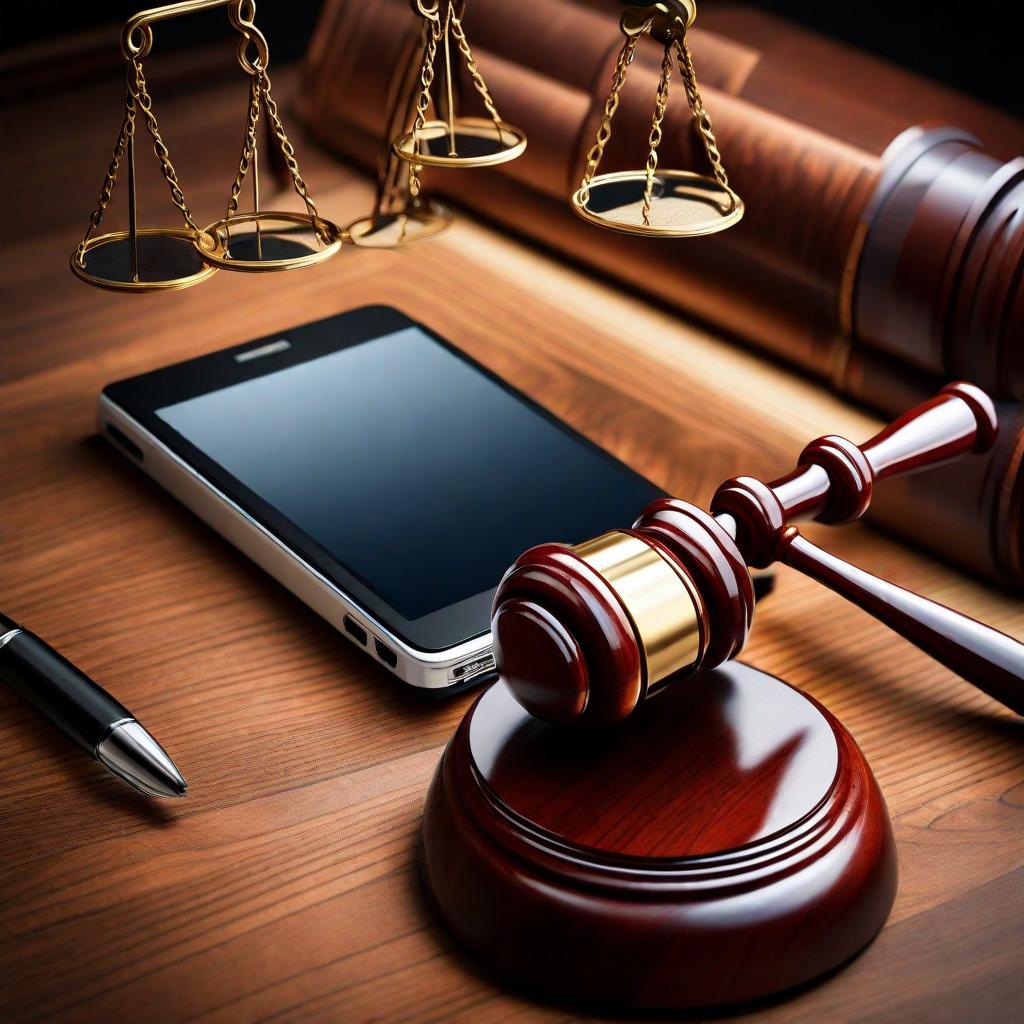
Balancing Innovation and Regulation: Navigating the Legal Frontiers of Technology
All Techopedia Technology Law Contents
Technology law, also known as IT law or cyber law, refers to the body of legal principles, regulations, and precedents that govern the use, development, and dissemination of technology, particularly in the realms of computers, the internet, and digital information. This interdisciplinary field encompasses various legal issues arising from technological advancements and their impact on society, businesses, governments, and individuals.

Key aspects of Technology Law include:
Technology law for Intellectual Property (IP):
- It deals with protecting intellectual property rights associated with digital assets, including copyrights, patents, trademarks, and trade secrets.
- It addresses issues such as ownership, licensing, infringement, and enforcement in the digital domain.
Privacy and Data Protection:
- Given the vast amounts of personal data collected, stored, and processed in digital systems, technology law focuses on safeguarding individuals’ privacy rights and ensuring compliance with data protection regulations.
- It governs practices such as data collection, storage, sharing, and security to prevent unauthorized access and misuse of personal information.
Cybersecurity:
- Technology law addresses legal issues related to cybersecurity, including cyberattacks, data breaches, hacking, malware, and other cyber threats.
- It involves regulations, standards, and best practices aimed at protecting digital systems, networks, and information assets from unauthorized access, disruption, or destruction.
E-Commerce and Digital Transactions:
- With the rise of online commerce and digital transactions, technology law regulates electronic contracts, online payments, digital signatures, consumer protection, and dispute resolution in the digital marketplace.
- It ensures the legality and enforceability of transactions conducted over the Internet.
Regulatory Compliance:
- It encompasses compliance with various regulations and standards governing the use of technology in specific industries, such as healthcare, finance, telecommunications, and energy.
- It involves adherence to regulatory requirements related to security, privacy, accessibility, and ethical considerations.
Internet Governance and Free Speech:
- It addresses legal issues surrounding Internet governance, domain name management, online content regulation, censorship, and freedom of expression.
- It involves balancing the rights of individuals to access information and express themselves online with the need to protect against harmful content and illegal activities.
Cybercrime and Law Enforcement:
- It includes legislation and enforcement mechanisms to combat cybercrime such as hacking, identity theft, online fraud, cyberbullying, and cyberterrorism.
- It provides legal frameworks for investigating, prosecuting, and deterring criminal activities conducted through digital means.
International and Cross-Border Issues:
- Given the global nature of technology and the internet, technology law deals with legal challenges arising from cross-border data flows, jurisdictional conflicts, international treaties, and cooperation in addressing cyber threats and digital governance issues.
World Top Global Technology Regulatory Bodies
In our interconnected world, technology has rules. Technology Law’s introduction provides a brief overview of key global regulatory bodies. From managing domain names to safeguarding consumer rights, these organizations shape our digital landscape.
Internet Corporation for Assigned Names and Numbers (ICANN):
- Headquarters: Los Angeles, California, United States
- Establishment: September 18, 1998
- Objective: ICANN oversees the management of the global Internet’s domain name system (DNS), allocates IP addresses, and regulates protocol parameters. Its primary aim is to maintain the stability and security of the Internet’s infrastructure, ensuring seamless connectivity and accessibility for users worldwide.
International Telecommunication Union (ITU):
- Headquarters: Geneva, Switzerland
- Establishment: December 17, 1865
- Objective: As a specialized agency of the United Nations, the ITU develops international standards for telecommunications, manages global radio spectrum allocation, and coordinates satellite orbit usage. Its mission is to facilitate universal access to information and communication technologies (ICTs) while promoting innovation and interoperability across nations.
Internet Engineering Task Force (IETF):
- Headquarters: Virtual (International)
- Establishment: January 16, 1986
- Objective: The IETF comprises a global community of network designers, operators, and researchers dedicated to evolving and standardizing the Internet’s architecture. It collaboratively develops and promotes voluntary Internet standards and protocols to ensure seamless communication and compatibility among diverse network technologies.
World Intellectual Property Organization (WIPO):
- Headquarters: Geneva, Switzerland
- Establishment: July 14, 1967
- Objective: WIPO, a specialized agency of the United Nations, fosters the protection of intellectual property (IP) rights worldwide. It administers international treaties related to patents, trademarks, copyrights, and trade secrets, promoting innovation, creativity, and economic development in a fair and balanced manner.
Organization for Economic Cooperation and Development (OECD):
- Headquarters: Paris, France
- Establishment: September 30, 1961
- Objective: The OECD promotes evidence-based policies that enhance global economic and social well-being, addressing challenges such as digital transformation, innovation, and digital security. It strives to foster sustainable economic growth, prosperity, and inclusivity through international cooperation and policy dialogue.
European Commission (EC):
- Headquarters: Brussels, Belgium
- Establishment: January 1, 1958
- Objective: As the executive branch of the European Union, the EC is responsible for proposing legislation and implementing decisions. It focuses on addressing technology related to data protection and digital markets within the EU, aiming to create a competitive and digitally resilient European economy that benefits all citizens.
Federal Trade Commission (FTC):
- Headquarters: Washington, D.C., United States
- Establishment: September 26, 1914
- Objective: The FTC safeguards consumer interests and promotes fair marketplace competition. It regulates various aspects of technology, including online privacy and consumer protection, to ensure transparency, trust, and equitable treatment for consumers and businesses alike.
Federal Communications Commission (FCC):
- Headquarters: Washington, D.C., United States
- Establishment: June 19, 1934
- Objective: The FCC regulates interstate and international communications in the United States, aiming to ensure accessible, reliable, and innovative communication services. It fosters competition, protects consumers, and facilitates technological advancement in the telecommunications industry for the benefit of the whole society.






